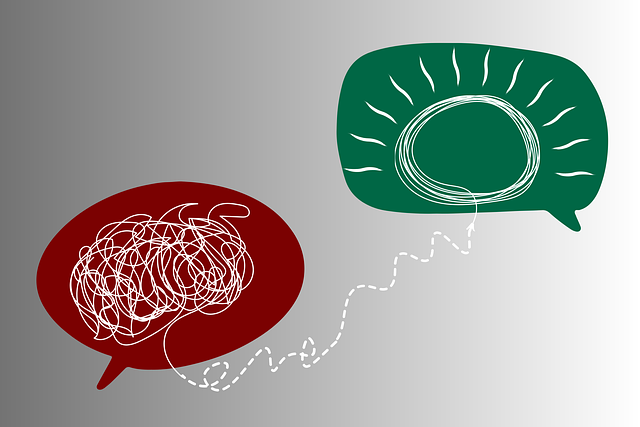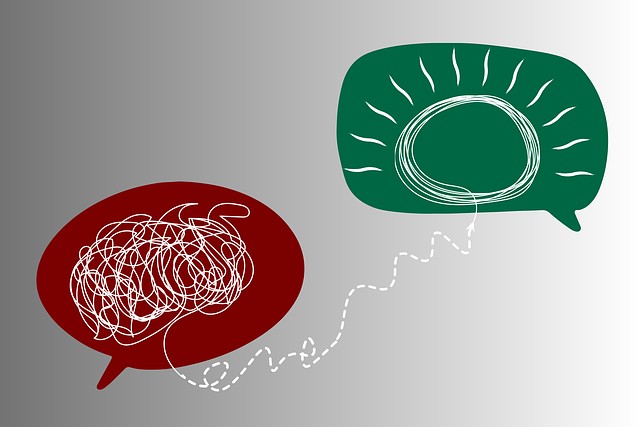Broomfield Chronic Pain Therapy (BCPT) introduces Resilience-Building Exercises (RFM)—a holistic framework that combines emotional intelligence, community support, and evidence-based practices. RFM empowers individuals to manage complex chronic pain by identifying resources, understanding triggers, fostering control, and addressing psychological aspects like stress, anxiety, and depression. This comprehensive approach integrates CBT, mindfulness, and stress management, leading to reduced symptoms, improved function, enhanced mental wellness, and burnout prevention for both patients and healthcare providers.
“Uncovering a powerful tool for managing chronic pain, this article explores the integration of RFM (Resilience, Flexibility, and Mindfulness) in Broomfield Chronic Pain Therapy. We delve into how this holistic approach enhances traditional treatments, offering a comprehensive guide to implementing resilience-building exercises. From understanding the science behind RFM’s impact on pain management to real-world case studies, readers will discover practical strategies for improving quality of life. Discover the future of chronic pain care as we highlight emerging research and trends in this transformative field.”
- Understanding RFM and Its Impact on Chronic Pain Management
- Broomfield Chronic Pain Therapy: An Overview of the Approach
- Implementing Resilience Building Exercises: Step-by-Step Guide
- Real-World Applications and Benefits: Case Studies and Future Directions
Understanding RFM and Its Impact on Chronic Pain Management

Chronic pain is a complex condition that often requires a multifaceted approach to manage effectively. Here, RFM—a revolutionary concept in Broomfield Chronic Pain Therapy—plays a pivotal role. RFM stands for Resources, Factors, and Mastery, a framework designed to help individuals navigate their pain experience by identifying and enhancing their personal resources, understanding the factors contributing to their pain, and fostering a sense of mastery over their lives.
By incorporating emotional intelligence as a key component, RFM goes beyond mere symptom relief. It empowers patients to address the psychological aspects of chronic pain, such as stress, anxiety, and depression, which are often interconnected. Community outreach program implementation, focusing on support groups and education, further strengthens this approach. This holistic perspective not only aids in pain reduction but also prevents depression by equipping individuals with resilience-building exercises tailored to their unique needs, ultimately enhancing their quality of life.
Broomfield Chronic Pain Therapy: An Overview of the Approach

Broomfield Chronic Pain Therapy (BCPT) is a comprehensive approach designed to address chronic pain effectively while prioritizing the mental health and overall well-being of individuals suffering from persistent discomfort. This therapy model recognizes that chronic pain is not solely a physical condition but also deeply intertwined with emotional and psychological factors, necessitating a holistic treatment strategy. The key principles of BCPT involve educating patients about their condition, encouraging coping mechanisms, and fostering resilience through various therapeutic techniques.
The approach emphasizes the role of mental health professionals in pain management, incorporating evidence-based practices such as cognitive behavioral therapy (CBT), mindfulness interventions, and stress management strategies. By integrating these elements, BCPT aims to enhance patients’ understanding of their pain, reduce associated anxiety and depression, and empower them with tools to better manage their symptoms. Moreover, this therapy model promotes cultural competency among healthcare providers, ensuring culturally sensitive care tailored to diverse patient populations through comprehensive training programs like Mental Health Policy Analysis and Advocacy and Healthcare Provider Cultural Competency Training. It also includes risk assessment for mental health professionals (e.g., screening for burnout, stress management) to ensure the well-being of those delivering care, thereby creating a sustainable treatment environment.
Implementing Resilience Building Exercises: Step-by-Step Guide

Implementing Resilience Building Exercises: A Step-by-Step Guide
In the realm of Broomfield Chronic Pain Therapy, resilience exercises serve as a powerful tool to empower individuals in managing their pain and enhancing mental wellness. The first step is Mental Wellness Coaching Programs Development: fostering an environment where clients feel safe to explore and express their emotions. Through open dialogue, therapists can guide patients to identify triggers and develop personalized coping strategies. This initial phase lays the foundation for building resilience by promoting self-awareness and emotional regulation.
Subsequent steps involve integrating various exercises tailored to individual needs. These could range from mindfulness practices designed to cultivate present-moment awareness, to cognitive reframing techniques that challenge negative thought patterns. Additionally, engaging in physical activities suitable for their condition can boost clients’ confidence and sense of accomplishment. Incorporating these strategies into daily routines, coupled with regular Mental Health Awareness discussions, enables individuals to navigate challenges with enhanced resilience. This holistic approach, combined with the support of a therapist, ensures that each step is navigated effectively, ultimately contributing to successful pain management and improved quality of life.
Real-World Applications and Benefits: Case Studies and Future Directions

Real-World Applications and Benefits: Case Studies and Future Directions
The implementation of resilience-building exercises (RFM) has gained significant traction in various sectors, including healthcare. For instance, Broomfield Chronic Pain Therapy has successfully incorporated RFM techniques to enhance patient outcomes. By fostering resilience among individuals suffering from chronic pain, this approach enables them to better cope with their conditions and improve overall quality of life. Research indicates that these exercises can reduce symptoms, increase functional capacity, and promote psychological well-being.
Looking ahead, case studies like these underscore the potential of RFM as Burnout Prevention Strategies for Healthcare Providers. Cultural Sensitivity in Mental Healthcare Practice and Compassion Cultivation Practices are also integral aspects that contribute to the success of RFM. As the field continues to evolve, further exploration and integration of these strategies can lead to more comprehensive and effective healthcare solutions, benefiting both practitioners and patients alike.
Broomfield Chronic Pain Therapy offers a comprehensive approach to managing long-term pain, emphasizing the mind-body connection. Implementing Resilience Building Exercises (RFM), as outlined in this article, can significantly enhance individuals’ ability to cope with chronic pain. By following a structured guide and drawing from real-world case studies, healthcare professionals can empower patients to navigate their pain journey more effectively. Future research should continue exploring these techniques, potentially revolutionizing chronic pain management and improving quality of life for affected individuals.














